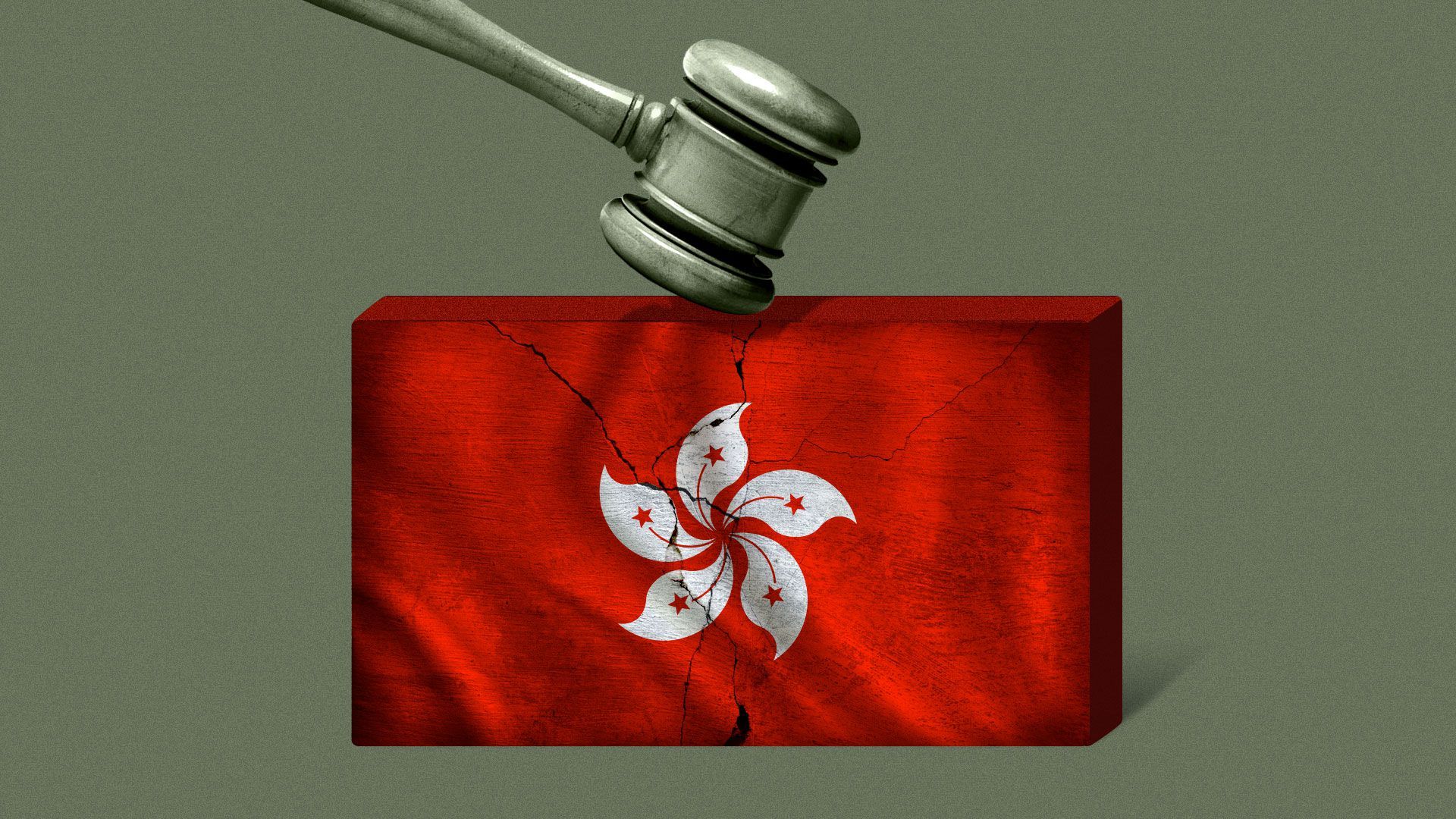Hong Kong's worst case scenario is happening
Add Axios as your preferred source to
see more of our stories on Google.

Illustration: Eniola Odetunde/Axios
The national security law imposed by Beijing on Hong Kong is playing out in line with the worst-case scenario its critics feared.
Driving the news: A slew of arrests under the draconian law culminated last week with charges against pro-democracy media tycoon Jimmy Lai.
- On Dec. 11, Lai, who publishes the Hong Kong tabloid Apple Daily known for its open criticism of Beijing, was charged on suspicion of "colluding with foreign forces" under the law.
- He was also denied bail, and court proceedings were delayed until April.
- Prosecutors said they needed this extra time to go through more than 1,000 posts on Lai's Twitter account — a bald-faced admission that what's on trial is Lai's free speech.
The backstory: The national security law, which was forced on Hong Kong by China's legislature in Beijing, subverts Hong Kong's own once-independent judiciary and imposes harsh penalties for vaguely defined crimes, including secession, terrorism and sedition.
It's now clear how Beijing is implementing the law. Beyond its general chilling effect, which resulted in a wave of self-censorship, the new law has already been invoked to charge over two dozen people, including numerous pro-democracy commentators and activists.
- The imposition of the law, and the atmosphere of fear it created, has emboldened Hong Kong authorities to crack down on protests and free speech.
- That atmosphere has made it easier for authorities to issue harsh sentences even without invoking the law. Pro-democracy activists Agnes Chow and Joshua Wong, known around the globe for their leadership during the 2014 "umbrella protests," were sentenced in early December for protest activities they led in 2019. Chow has also been charged under the national security law.
Hong Kong Chief Executive Carrie Lam has repeatedly defended the law, saying it will only be used against "radicals" and "enemies of the people," while Zhang Xiaoming, a top Chinese official tasked with Hong Kong affairs, said the law would only "punish a tiny number of criminals who seriously endanger national security."
- But Hong Kong and international law experts warned the law could be applied very broadly and used to crush civil society and organizing.
- Jerome Cohen, an expert on Chinese law, wrote in July that the law's impact on Hong Kong would be determined by how Beijing chose to implement it.
The big picture: Laws can criminalize activities in more than just a legal sense.
- Charges stemming from the national security law have referred to pro-democracy activities with the same linguistic framework used for terrorism and corruption — such as arresting a radio host for "money laundering" after he launched a Patreon account to fund his show.
- Over time, the repeated portrayal of such activities can make them seem inherently illegitimate in a social sense.
- Because it uses a recognized national security and legal lexicon delivered by the vestiges of a once-respected judicial system, Hong Kong's crackdown gives a sheen of legitimacy to repression.
What to watch: Hong Kong activists seeking asylum or refugee status in the U.S. currently face numerous obstacles. There is strong interest in Congress and the Trump administration in finding ways to help Hong Kong residents find safe haven in the U.S.
- The U.S. Senate Judiciary Committee's Subcommittee on Border Security and Immigration will be holding a hearing on this topic on Dec. 16, with activist-in-exile Nathan Law and others as witnesses.
The bottom line: Lai's arrest shows the power and true intent of the law — to legally equate criticism of Beijing with sedition, and to crush it accordingly.
